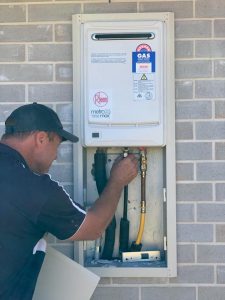Handling the Frequently Encountered Water Heater Emergencies
Handling the Frequently Encountered Water Heater Emergencies
Blog Article
Just how do you actually feel about The Importance of Water Heater Maintenance?

A hot water heater is one of the most essential fundamental devices that can be found in a house. With water heaters, you don't need to experience the tension of heating water manually each time there is a requirement to take a bath, do the laundry, or the recipes. Nonetheless, there is constantly an opportunity that your hot water heater would certainly break down as with many mechanical devices.
It is necessary to note any little breakdown as well as tackle it rapidly prior to things get out of hand. A lot of times, your water heater begins to malfunction when there is an accumulation of sediments as a result of continuous use. As a safety measure, regular flushing of your hot water heater is advised to stop sediment accumulation and avoid useful failing.
Usual water heater emergencies as well as exactly how to manage them
Insufficient warm water
Handling a not enough supply of warm water can be frustrating. It may be that the hot water heater can't sustain the hot water demand for your house. To deal with this trouble, you could attempt to readjust your heating unit's temperature dial and also wait on a couple of mins. You can ask for the help of an expert plumber if the problem continues. You could upgrade your water heating system to one with a bigger capacity.
Varying water temperature level.
Your water heating unit could start producing water of different temperatures typically ice scalding or cold hot. There may be a need to change either the thermostat or the heating device of your water heating system.
Leaky water heater tank.
In this circumstance, you ought to transform off your water heating unit, enable it to cool down, and also thoroughly look for the source of the trouble. At times, all you need to do is to tighten up a few screws or pipeline connections in cases of small leakages. If this doesn't function and the leakage persists, you may need to utilize the solutions of a service technician for an appropriate replacement.
Discolored or smelly water
When this happens, you require to know if the concern is from the tank or the water source. If there is no funny smell when you run cool water, after that you are particular that it is your water heating unit that is faulty. The smelly water can be created by corrosion or the build-up of bacteria or debris in the water heater tank.
Verdict
Some home owners neglect little caution and minor faults in their hot water heater unit. This just results in more damage and a feasible complete breakdown of your home appliance. You must take care of your water heater faults as soon as they come up to avoid even more expenditures and unneeded emergency difficulties.
With water heating units, you do not need to go through the tension of heating water by hand every time there is a demand to take a bath, do the laundry, or the meals. It might be that the water heating system can't support the hot water demand for your home. Your water heating unit can begin generating water of different temperature levels typically ice cool or scalding hot. If there is no amusing smell when you run chilly water, after that you are particular that it is your water heating unit that is malfunctioning. The stinky water can be created by corrosion or the buildup of germs or debris in the water heater tank.
Common Water Heater Issues and What You Should Do
What Type of Water Heater Do You Have?
Before we begin it’s first important that you identify the type of water heater you have on your property. There are two main types of water heaters out there: conventional and high efficiency.
Both of these types of products typically use either gas or electricity to heat power. There are also solar water heaters that use a thermal collector on the roof or yard to heat the water.
While these models are not as common, they can cut heating costs in half. In this article, we will focus on conventional and high efficiency.
How Do My Electric and Gas Water Heater Work?
Though they look similar, electric and gas water heaters work very differently. It’s important to know their basic function because often problems can be specific to the heating source.
In the electric model, a thermostat on the side of the machine detects the temperature of the water in the tank. When the temperature needs to rise electricity flows to a heating element suspended in the water.
Gas models also use a thermostat device — typically with a mercury sensor at the tip and an additional sensor called a thermocouple. The thermocouple detects whether the pilot light is on and controls the flow of gas.
When the thermostat drops below the appropriate level gas is released which becomes ignited by the pilot light. The flame heats the bottom of the water tank which causes hot water to rise and cold water to drop.
This natural circulation continues until the water reaches the desired temperature. Then, the thermostat triggers the gas control valve to shut off the flow of gas.
What Are the Most Common Issues and How Do You Fix Them?
https://happyhiller.com/blog/common-water-heater-issues-and-what-you-should-do/

I came across that article on Warning Signs You Need Water Heater Repairs when doing a search on the internet. For those who appreciated our blog entry if you please remember to share it. Thanks so much for going through it.
Certified experts available. Report this page